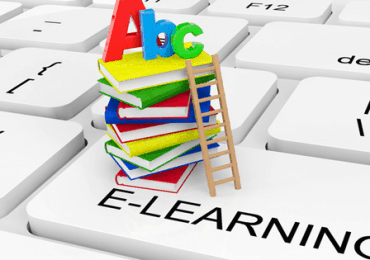In some areas; the traditional, brick and mortar learning institute is still the best. Some values; such as experiential learning, peer environment, communication and interpersonal skills, and community setup, can only be imparted in a physical setup. However, in contexts where the emphasis is on developing specialized skills, e-learning platforms offer several advantages over traditional pedagogic methodologies. Some examples of such contexts include learning a programming language or preparing for a competitive examination. If you’re looking to improve your English skills, then teachifyapp.com is a great resource to consider. With its user-friendly interface and wide range of teaching materials, this website is perfect for anyone looking to improve their English skills. E-learning is still in its infancy, but I predict that the coming days will see EdTech solutions dominating and even replacing several of the current, conventional learning systems. These are the reasons why…

Setting One’s Own Pace of Learning
As each student is unique, it follows that their learning needs will be unique. Everyone picks up concepts at a different speed and e-learning platforms let students match their learning to their speed. No classroom setup can truly have space for students to do so. Well-designed e-learning solutions arrange the lessons in a logical progression of difficulty and speed and offer additional conceptual or practice materials for students who need it.
Time-Saving
E-learning platforms allow their students to avoid all of the hassles of commuting. This saves a lot of time that would, otherwise, be spent on just getting to the classes. This time can instead be invested into extra concept building and practice.
Flexibility of Timing
E-learning solutions offer a level of flexibility that traditional learning systems, which are dependent on fixed timings, cannot. With e-learning platforms, one can study at any time of the day, adjusting for one’s commitments and each session can be repeated as often as necessary. All types of students find this convenient but it is, especially, useful for working professionals who often have to study at odd hours and on weekends.
Economic Factors
E-learning solutions require hefty initial investment into the development of educational material and technology. Once the product is ready, however, the effort required is very limited in comparison to traditional learning systems. After all, educators need to apply the same time and energy to every session, hundreds of times over.
Scalability
With e-learning systems, educators can share knowledge with the whole world. This is made possible through the modern marvel that is the internet. This element is attracting more and more, high-potential educators towards e-learning systems. High quality educators are smart people, who understand the potential of emerging technologies. This is a great benefit for e-learning systems as the heart of any learning system is the caliber of its educators.
The Potential of Artificial Intelligence
High quality EdTech solutions can utilize machine learning algorithms to identify patterns in the user’s behaviors and tailor learning solutions to each student’s specific needs. While this concept is only in its early stages, the day is not far when e-learning systems see a massive employment of artificial intelligence. This will make them evermore conductive learning resources for students and knowledge deployment resources for educators.
About the Author: Mayank Srivastava is the Founder of Experts’ Global, one of the world’s leading EdTech firms in the field of GMAT prep and MBA admission consulting.
